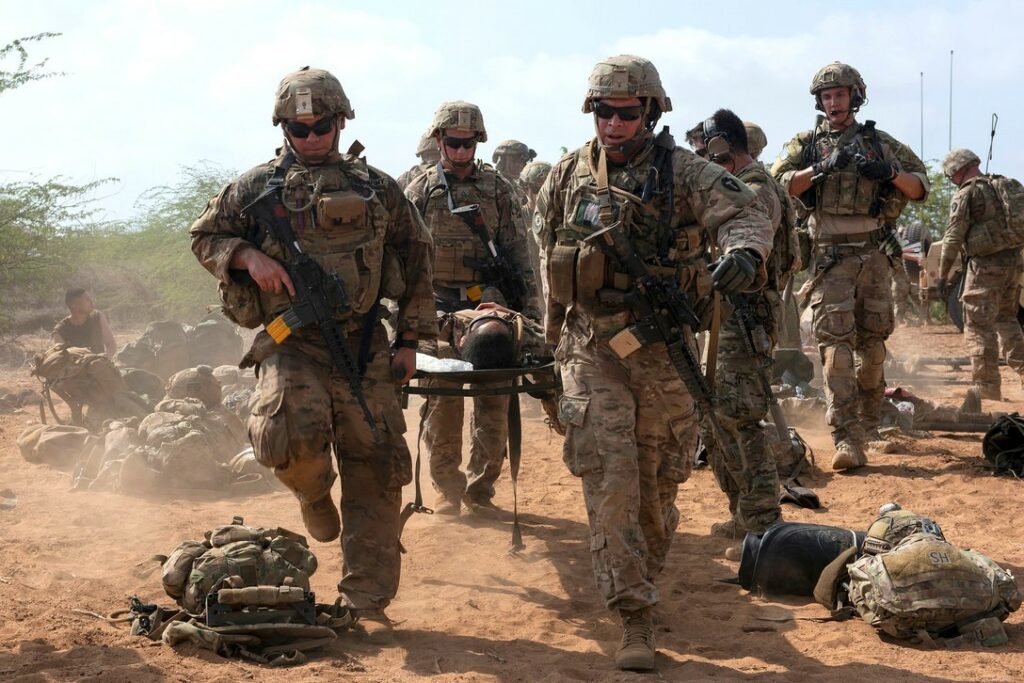EPIC3
An app to help medics screen for traumatic injuries
Ensemble Prediction for Combat Casualty Care (EPIC3)
EPIC3 can reduce the number of preventable deaths from battlefield injuries by resolving the issues faced by medics in the field.
Combat casualty care does not begin at the hospital; medics begin treating wounded Warfighters in the field at the point of injury. Wartime medics face countless challenges—each moment matters, and medics must screen for potentially life-threatening injuries in the most hostile environments.
To address these challenges, Charles River designed and developed the EPIC3 app to provide medics with a screening tool that quickly and accurately predicts traumatic injury and other patient outcomes.
“EPIC3 is a powerful app that makes lifesaving tasks easier for combat medics. It compiles diagnostic and treatment techniques from medical experts and the latest research, then presents medical alerts and treatment guidance in a simple interface tailored to the medic’s needs and skill level.”

Max Metzger,
Principal Investigator on the EPIC3 effort
EPIC3 builds on other techniques and apps Charles River has developed to support Warfighters and predict traumatic injury, such as the TMT tourniquet training system and the PROMPTER training tool to improve battlefield first-aid skills. EPIC3 uses a unique combination of components and technologies, including a variety of machine learning techniques, the real-time processing of medical sensor data, and our Methodology for Annotating Skill Trees (MAST), model trauma treatment procedures.
EPIC3 is one of our Healthcare Support and Training efforts, which addresses medical skills training, therapy and decision-support tools, as well as sensor and sensing technologies. We also developed the VITAMMINS medical simulation and tutoring system, and the STAT tablet-based training system, which presents a virtual patient in multiple trauma scenarios for efficient and effective learning, rehearsal, and assessment.
Contact us to learn more about EPIC3 and our other medical training capabilities.
This work is supported by the US Army Medical Research and Materiel Command under Contract No.W81XWH-18-C-0008. The views, opinions and/or findings contained in this report are those of the author(s) and should not be construed as an official Department of the Army position, policy or decision unless so designated by other documentation. The appearance of Department of Defense imagery does not imply endorsement.

